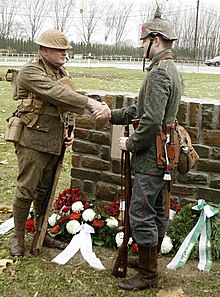Mark Ganzer The pastor emeritus of Trinity Lutheran Church in Ingleside, IL, related the story of the first service he presided over out of seminary school. Since the pastor he was filling in for had retired, Pastor Dave wanted to make it clear to the congregants that he was NOT the replacement pastor, only a temporary pastor, then he looked up, saw a boarded up window, and said , "I'm temporary - just like that window where there is no payne of glass."
a few seconds ago ·
 Mark Ganzer As he greets the parishoners leaving the service, one older later shakes his hand, looks him straight in the eye and says, "You're not a replacement - you are a PAIN." Congregation fell out of the pews with laughter. Must simply LOVE ambiguity.2 seconds ago ·
Mark Ganzer As he greets the parishoners leaving the service, one older later shakes his hand, looks him straight in the eye and says, "You're not a replacement - you are a PAIN." Congregation fell out of the pews with laughter. Must simply LOVE ambiguity.2 seconds ago · 

